21 September: GFC commemorates the international day of struggle against monoculture plantations
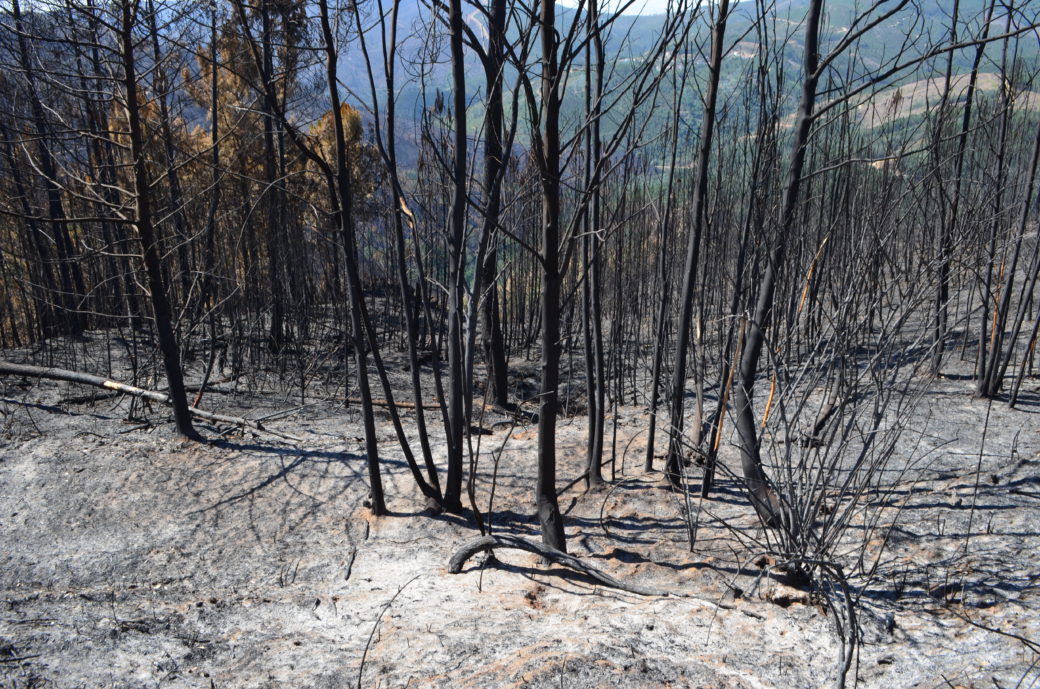
To mark this international day of struggle against monoculture tree plantations, we are publishing a striking photo essay about the role of eucalyptus plantations in Portugal’s awful forest fires, as well as an opinion article in the Ecologist Magazine. In it we emphasize the importance of conserving and restoring natural forests.
Photo-essay
Click here to see the complete photos and stories on our photo library
Opinion article
Click here to see the op-ed by Oliver Munnion
La lucha sigue/the struggle continues!
The role of eucalyptus plantations in Portugal’s awful forest fires
Here are some photos for this international day of struggle against monoculture plantations:
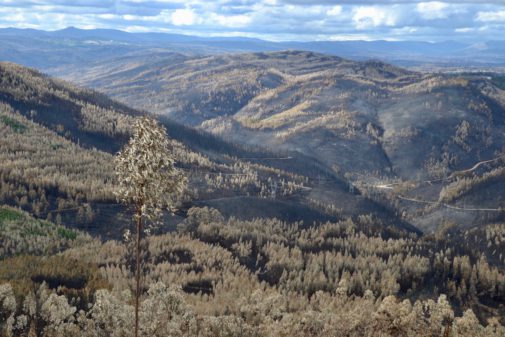
Burnt landscape in the aftermath of the fires | Around 70% of the area that burned in June was covered in eucalyptus and pine monoculture plantation. Photo credit: Domingos Patacho
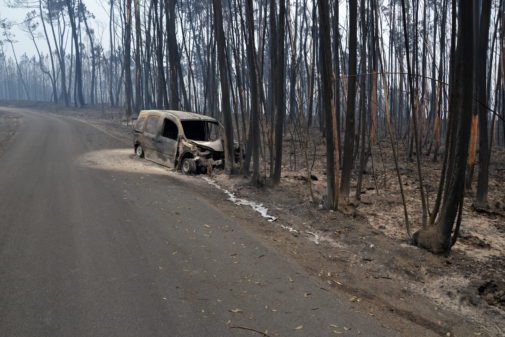
A car that melted to a halt | The car owner Mário from Pedrogão Grande who ran away after abandoning the car was found dead nearby. In this photo, molten aluminium from the car engine is seen flowing down the edge of the road, which is flanked by eucalyptus plantations. Temperatures were high enough to melt aluminium, which has a melting point of 660 degrees Celsius. Photo credit: Domingos Patacho
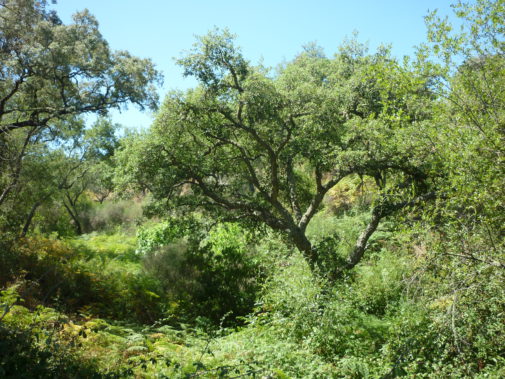
Portugal’s picturesque native woodlands | Portugal’s picturesque native woodlands are home to oaks, chestnuts, and laurels. The cork oak (Quercus suber), Portugal’s national tree, is an important part of forest ecology, as well as the country’s economy. But today eucalyptus (Eucalyptus globulus), a native of Australia, has taken over to become Portugal’s most common tree. Photo credit: Cath Traynor
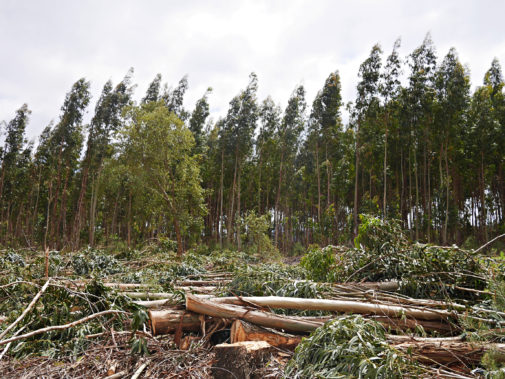
Proportionally, Portugal now has more eucalyptus than anywhere in the world | Vast plantations cover huge areas of the central and northern regions of the country. The powerful paper and pulp industry lobby has opposed any regulatory efforts to contain how it is planted. As a result, ineffective forestry policy allows illegal plantations and ignores fire safety precautions, such as safe distances from houses and roads. Photo credit: Allysse Riordan
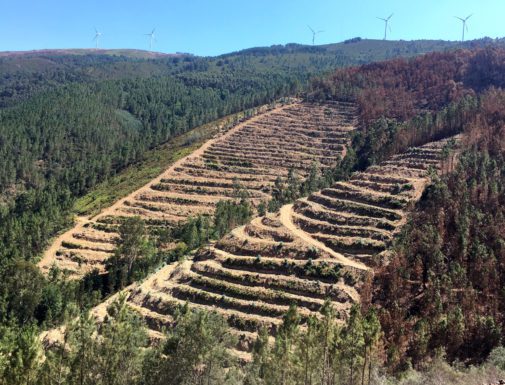
Eucalyptus causes much environmental damage | When eucalyptus is planted the land is ploughed on contour, with the topsoil and any plant life literally bulldozed away. Eucalyptus plantations are “green deserts”, they exhaust the soil, out-compete other plant life, and can’t support wildlife. They dry up scarce groundwater, vital to communities in the summer, and they are highly flammable, spreading forest fires over great distances. Photo credit: Ashlesha Khadse
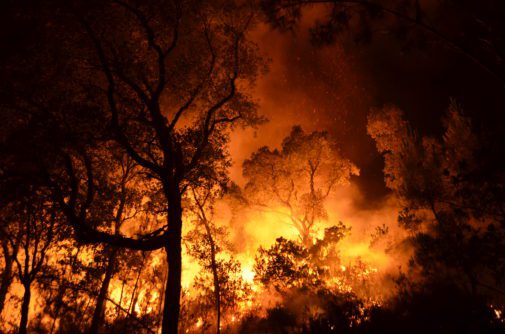
Wildfires in central Portugal | On 17th June a dry thunderstorm ignited a forest fire in central Portugal, already parched from an intense heat wave and severe drought. It quickly spread over nine different municipalities and took a week and vast fire-fighting resources to extinguish. Sixty four people lost their lives, mostly trying to flee the fires in their cars, on roads flanked by eucalyptus plantations. Photo credit: Margus Kurvitis

Fire-fighting helicopters had become an everyday occurrence | Throughout the summer the sight of fire-fighting helicopters and planes crisscrossing the sky had become an everyday occurrence, as firefighters struggled to put out thousands of forest fires. Photo credit: Anon
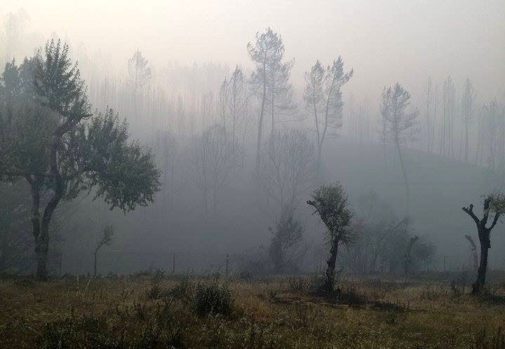
Thick smoke blotted out the summer sun for days | Thick smoke blotted out the summer sun for days at a time, with the authorities trying to cope with multiple out-of-control wild fires across the country. Photo credit: Julie Jennings










